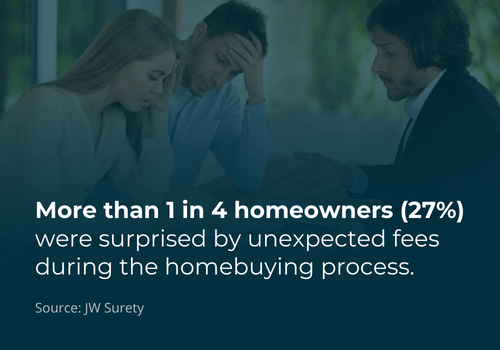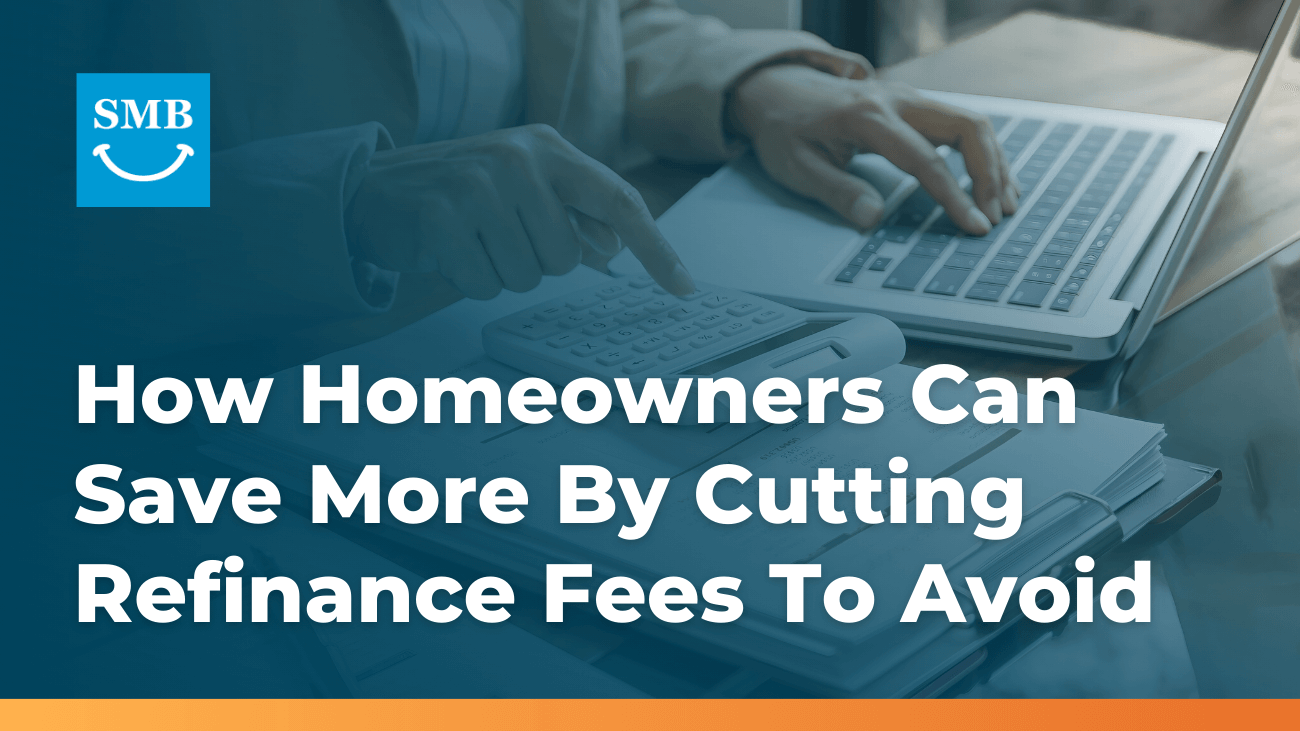10 Secrets to Buying a House in Seattle

Originally posted on January 22, 2021, updated on August 11, 2025.
Ready to buy a house in the Emerald City?
Buying a home is never without challenges, but in Seattle’s booming real estate market, the pace is faster, the competition is fiercer, and the pressure is higher.
Homes can attract multiple offers within days, and knowing how to navigate the process can make all the difference.
Fortunately, you don’t have to figure it out on your own.
Local experts who’ve spent years mastering Seattle’s housing market are ready to share the strategies, insights, and shortcuts that help buyers succeed.

Here are 10 insider tips and essential things to know about buying a house in Seattle.
Think of this as your guide to making good decisions in one of the most competitive markets in the country.
Things to Know About Buying a House in Seattle
Seattle’s housing market moves fast, and for buyers, it can feel overwhelming.
But with the right preparation and strategy, you can go secure a home that fits your needs and budget.
From timing your purchase to choosing the right neighborhood and understanding your financing options, these insights will help you make informed decisions that get you your dream home.
1. In Seattle’s Market, Sooner Is Smarter
Seattle has a long track record of rewarding home owners.
If you’re ready, getting in sooner rather than later can make a big difference.
As of April 2025, the average home value in Seattle is around $880,000, up 18.4% over the past five years (Zillow). While the long-term trend is strong, recent months have seen a slight dip in prices.
For prospective buyers, this is a rare opening to secure a dream home at a slightly lower price point before the market picks up again.
What This Means for Homebuyers
Short-term leverage is growing.
With prices easing and listings increasing, buyers have more negotiating power which is something that’s often hard to come by in Seattle’s competitive market.
Seattle is still a long-term winner.
History shows Seattle real estate values rise over time, making early action potentially more profitable than waiting.
It's time to act.
If your finances are in order and you’re thinking long-term, this temporary softness could be your best shot rather than holding out for a “perfect” market that may never arrive.
Tips For First-Time Homebuyers
If you’re buying your first home, you may have more options to get started than you think, even in a high-priced market like Seattle.
- Down Payment Assistance Programs: Washington State offers programs such as the Home Advantage DPA and Opportunity DPA, which can provide low-interest loans or grants to help cover your down payment and closing costs.
- First-Time Buyer Loans: FHA loans require as little as 3.5% down, while VA and USDA loans may allow eligible buyers to put 0% down.
- Tax Credits and Savings Programs: Look into the Mortgage Credit Certificate (MCC) program, which can reduce your federal tax bill, and special savings programs like a First-Time Homebuyer Savings Account.
Bottom line: Seattle home values have a history of climbing. Buying now means you could ride the next wave of appreciation, instead of paying more later for the same home when someone else has already made their move.
2. Identify the Right Neighborhoods for Your Lifestyle
Finding your dream home means finding the right neighborhood to match your lifestyle.
Seattle’s metro area is a patchwork of diverse communities, each with its own personality, amenities, and lifestyle perks.
Whether you’re drawn to buzzing nightlife, peaceful tree-lined streets, or breathtaking waterfront views, narrowing your focus early will make your search faster, easier, and far more strategic.
This clarity also helps your real estate agent target the right areas and act quickly when the perfect property becomes available. In some Seattle neighborhoods, homes can sell within days—or even hours—so being ready to make an offer can mean the difference between getting your dream home or losing it to another buyer.
7 Popular Seattle Neighborhoods to Explore in 2025
Looking for a place to start? Here are some of our favorite neighborhoods:
- Ballard:Trendy, walkable, and rich in maritime history, Ballard blends historic charm with modern restaurants, breweries, and boutique shopping.
- South Lake Union: A fast-paced tech hub home to Amazon headquarters, with luxury high-rises, urban parks, and a short commute to downtown.
- Leschi: A peaceful residential enclave with scenic lake views, waterfront parks, and a relaxed neighborhood feel.
- North Admiral: West Seattle’s oldest neighborhood, offering a small-town atmosphere, easy water access, and local dining gems.
- Montlake: Centrally located with charming tree-lined streets, close to the University of Washington, downtown, and outdoor recreation spots.
- Redmond: Known for its tech industry presence, excellent parks, and highly rated schools—ideal for both families and professionals.
- Greenwood: A community-focused neighborhood with eclectic dining, coffee shops, and a friendly, laid-back atmosphere.
5 Great Seattle Suburbs Worth Considering
If calm streets and a close-knit community are on your wish list, these suburbs are top contenders.
- Sammamish: Family-friendly with top-tier schools, parks, and a strong sense of community.
- Snoqualmie: Surrounded by natural beauty, offering mountain views, hiking trails, and a close-knit vibe.
- Redmond: Suburban comfort combined with proximity to major employers and abundant green spaces.
- Duvall: Rural charm and open space, just a short drive from Seattle, perfect for those wanting a slower pace without losing city access.
- Maple Valley: Affordable housing, great schools, and a welcoming small-town spirit.
Pro Tip: Once you have a short list of neighborhoods you like, start visiting public open houses—even before you’re ready to buy.
This will give you a feel for typical home layouts, condition, and pricing in each area. You’ll also get a better sense of what features matter most to you, which can help you move faster and more confidently when it’s time to make an offer.
Looking to dive deeper into Seattle’s neighborhoods and discover what makes each one unique? Check out our full guide: How to Find the Right Neighborhoods in Seattle.
3. Be Savvy About Home Age and Value
In Seattle’s real estate market, the year a home was built plays a big role in its price, condition, and long-term maintenance costs.
Understanding the pros and cons of each era will help you do your due diligence before making an offer—and ensure the home fits your budget, lifestyle, and income level.
Pro Tip: No matter the age of the home, always include an inspection contingency in your offer.
This gives you the legal right to back out or renegotiate if significant issues are found. A licensed home inspector should check key areas like the foundation, roof, plumbing, electrical systems, and potential pest or mold damage.
If you’re considering a fixer-upper, look into an FHA 203(k) loan, which lets you finance both the purchase and renovation in one mortgage. This can help you save more of your income for other expenses.
4. Square Footage Is Expensive
In Seattle, space is expensive. The median price per square foot is over $517, compared to about $148 nationwide. Every additional 100 square feet can add more than $50,000 to the listing price.
That’s why focusing too narrowly on a specific square footage can limit your options and inflate your budget. A well-designed 1,000-square-foot home can often feel more spacious and functional than a poorly laid-out 1,500-square-foot property.
Bottom line: Layout and usability matter more than raw square footage.
Tour a variety of home sizes, evaluate how the space is used, and measure key furniture to ensure it fits. This approach keeps your search open, your options broader, and your budget in check.
5. The Roles of Agents in Buying a Home
Buying a home in Seattle isn’t just about finding the right property.
You also need to understand who’s involved in the process and what role each person plays. Knowing how these professionals work (and how they’re paid) can help you navigate the market more effectively.

Buyer’s Agent
The real estate agent that represents the buyer helps you find properties, schedule showings, advise you on pricing, and negotiate terms that protect your interests.
They’ll also guide you through the process of making an offer, reviewing the purchase and sale agreement, and coordinating inspections.
How they’re paid: In most Seattle transactions, the seller covers the buyer’s agent’s commission as part of the total commission agreed upon with the listing agent—meaning you typically don’t pay your agent directly.
Listing Agent
The listing agent, sometimes called the selling agent, represents the home seller.
They are responsible for marketing the property, setting a competitive list price, hosting an open house, and presenting offers to the seller.
How they’re paid: The listing agent earns a commission—usually a percentage of the final sale price—paid by the seller. This commission is often split with the buyer’s agent.
How the Process Connects
- The price is set by the seller with guidance from the listing agent, based on market data and comparable properties.
- An open house allows potential buyers to tour the property, often without making an appointment, and gives listing agents a chance to generate interest.
- When you’re ready to move forward, your buyer’s agent will prepare and submit an offer. If accepted, you’ll sign a purchase and sale agreement, which outlines the terms of the transaction, including price, contingencies, and timelines.
Pro Tip: Remember, real estate agents work for you, so choose someone who understands Seattle’s competitive market and communicates clearly.
6. Pick the Right Time of Year for Your Home Search
The season you choose to start your home search can make a real difference in both your options and your final price.
Like most housing markets, Seattle’s real estate activity shifts with the seasons, and knowing when to buy can give you a competitive edge.
If You Want More Choices: Shop in Late Spring and Summer
- Why: This is the busiest moving season, so inventory is at its peak.
- Benefit: You’ll have the largest selection of homes, neighborhoods, and features to choose from.
- Trade-off: Higher competition often drives up prices and can lead to bidding wars.
If You Want the Best Home Prices: Buy in Winter
- Why: Fewer buyers are in the market, especially between Thanksgiving and New Year’s.
- Benefit: Sellers are more motivated to negotiate, making it easier to score a deal.
- Trade-off: There are fewer homes on the market, so you may need to compromise on certain features.
Pro Tip: If you can be flexible, late fall offers a sweet spot in the Seattle market. During this time of year, you’ll find motivated sellers before the holidays while still having a larger selection of homes to choose from.
7. Decide What Matters More: Price or Commute
In Seattle, the closer you are to downtown, the higher the house prices will be.
For some buyers, paying a premium for a quick commute to work, entertainment, and amenities is worth it. For others, the ability to afford more space or better features takes priority—even if it means more time on the road.
If convenience is your priority: Be prepared to pay top dollar for a home with easy access to your daily destinations. This can make sense if you plan to stay with your employer for years and want to avoid the stress of a long commute.
If price is your priority: Look farther from the city center to afford more home for your budget. The trade-off is a longer commute, but the savings can be significant compared to higher house prices near downtown.
Bottom line: Decide whether location convenience or affordability matters more, then choose a home that works for your current needs and future plans.
8. Down Payment: How Much You Really Need in Seattle
Your down payment affects everything from your monthly mortgage payment to how competitive your offer is in Seattle’s fast-moving market. It’s also one of the first things sellers look at when in multiple offer situations.
How Much to Plan For
- Typical range: Most buyers put down 3% to 20% of the price of the home.
- Seattle reality: With a median home price of about $880,000, that’s between $26,400 (3%) and $176,000 (20%).
- Why 20% is popular: It helps you avoid private mortgage insurance (PMI), lowers your monthly payments, and can sometimes help you qualify for a better mortgage rate.
Options for Lower Down Payments
- Conventional loans: As little as 3% down for qualified buyers.
- FHA loans: 3.5% down with more flexible credit requirements.
- VA and USDA loans: 0% down for eligible borrowers.
- Down payment assistance programs: State and local resources can help first-time homebuyers bridge the gap.
Why It Matters
- Makes your offer stronger: Larger down payments show that you’re serious and financially secure.
- Reduces monthly costs: A smaller loan means lower payments and possibly no PMI, leaving you with more money for other expenses.
- Builds equity faster: You own more of your home from day one, and if the property’s market value increases, you benefit from greater returns.
Pro Tip: Don’t drain your accounts just to hit 20%. Keep a cushion for repairs, emergencies, moving expenses, and closing costs. A mortgage broker can compare scenarios so you choose a down payment that balances affordability, competitiveness, and long-term financial security.
9. Budget for Seattle’s Closing Costs

On top of your down payment, you’ll need to plan for closing costs, which typically range from 2%–5% of the purchase price in Seattle.
These expenses cover essential services in the home-buying process such as your escrow company handling the transaction funds, your title company ensuring clear property ownership, loan origination fees, recording costs, and more.
For an $800,000 home, that means an extra $16,000–$40,000. It's important to plan for this amount in advance.
Typical Seattle Closing Cost Breakdown (2%–5% of Purchase Price)
Pro Tip: Ask your lender for a detailed Loan Estimate early in the process so you know exactly what to expect—and where you might have room to negotiate.
10. A Mortgage Broker Can Help You More Than You Think
In Seattle’s housing market, it’s not uncommon for properties to attract multiple offers within days. In some neighborhoods, they sell in fewer than 24 hours.
To compete in this environment, prospective buyers need to be fully prepared before a search even begins. That means knowing your must-haves, understanding your target neighborhoods, and—most importantly—having your financing in place.
How a Mortgage Broker Helps With Your Mortgage Loan
An experienced mortgage broker can:
- Explain your financing options in plain language
- Help you determine what you can comfortably afford
- Ensure all documentation is ready so you can submit an offer immediately
- Guide you through the process from application to closing
Why Pre-Approval Matters
Getting pre-approved for a mortgage:
- Gives you a clear budget
- Speeds up the buying process
- Signals to sellers that you’re a serious, qualified buyer
Pre-approval can be the difference between getting your offer accepted or losing out to someone who’s ready to move.
In a market as competitive as Seattle, that kind of expertise and preparation can be the deciding factor between securing your dream home and missing the opportunity.
How to Start Your Home Search in Seattle
With the right preparation and guidance, you can land a home that meets all of your needs without going beyond your budget.
If this is your first home purchase, the steps you take now matter.
Start by getting a pre-approval letter so sellers see you as a serious, qualified buyer. Stay informed on current mortgage rates so you know exactly what you can afford. And be ready for the final walkthrough, where you confirm everything is in order before closing.
Next step: Connect with our mortgage experts to explore your options, secure competitive rates, and get pre-qualified so you’re ready to make a winning offer the moment your dream home hits the market.
Get started with Seattle's Mortgage Broker today.


The Ultimate Guide to the Best Suburbs of Seattle

Should You Use a Mortgage Broker? Everything You Need to Know First

How to Find the Right Neighborhoods in Seattle for Your Budget and Lifestyle

Warrantable vs. Non-Warrantable Condos: What Every Buyer Needs to Know Before Financing

How Much Does It Cost to Refinance a Mortgage in Seattle? A Homeowner’s Guide
.png)
How Often Can You Refinance Your Home?
.png)
The Complete Guide to For Sale By Owner (FSBO) in Seattle

10 Questions Every Seattle First-Time Home Buyer Asks

Ultimate Seattle Mortgage Loan Documents Checklist

Your Complete Guide to Seattle Property Tax

Why You Should Work with a Mortgage Broker

Where to Find the Best Local Mortgage Broker

Where Are The Best Places To Live In Seattle?

What’s the Best Way to Save Money for a House in Seattle?

When is the Best Time to Refinance a Home?

What is the Jumbo Loan Limit in Seattle 2020?

What You Need to Buy a House in Seattle

What Is a Jumbo Loan and will you need one when moving to Seattle?

What is the Jumbo Loan Limit in Seattle?

What Is A Non-Warrantable Condo?

What is the Best Down Payment Amount on a House in Seattle?

What is PMI Mortgage Insurance? And Why It Is Not As Bad As You Think

What Is A Cash-Out Refinance?

What do Home Loan Underwriters Look For?

What Down Payment Do I Need for a House?

What Are The Costs of Buying a Home?

What Are The Best Neighborhoods In Seattle For Families?

FAQ: What Are the VA Home Loan Requirements?

WEST SEATTLE JUNCTION ; Seattle Neighborhood Tour

What are RSUs and How to Spend Them

Understanding Mortgage Down Payments

Top 5 Seattle Suburbs to Buy In 2021

Understanding Down Payments in Seattle

The Ultimate Mortgage Document Checklist

Top 10 Questions To Ask A Mortgage Broker (Before You Commit)

The Worst First-Time Homebuyer Mistakes

The Top 5 Seattle Suburbs for 2020

The Best Seattle Neighborhoods in 2020

How to Find the Best Mortgage Refinance Companies in Seattle

The Best Seattle Neighborhoods for Families

The Best Neighborhoods in Seattle to Buy a Home

The 7 Best Seattle Suburbs for Families

Seattle Neighborhood Guide: The Top 10 Most Affordable Places To Live In Seattle

SOUTH LAKE UNION ; Seattle Neighborhood Tour

Seattle Summer Housing Market Guide 2020

Seattle Housing Market Update 2020

Seattle Housing Market Hacks

Save Money When Buying a House in Seattle

Save Money on Your Mortgage Refinance

Moving to Seattle with a Family? Here's the BEST Suburbs For You!

Refinancing To Reduce Your Bills and Increase Available Cash

Neighborhoods in Seattle to Buy a Home 2020

Real Estate Trends in Seattle

Mortgage Down Payments in Seattle

MAGNOLIA ; Seattle Neighborhood Tour

Mistakes to Avoid with Cash-Out Refinance

How to Refinance Your Home in 9 Steps

Jumbo Loan Limit vs Conforming Loan Limit in Seattle for 2021

KIRKLAND ; Seattle Neighborhood Tour

Jumbo Loan Limit in Seattle for 2021

ISSAQUAH ; Seattle Neighborhood Tour

Is My Credit Score Good Enough to Buy a House?

How to Buy a House; Home Buying 101

How to Lower Your Monthly Mortgage Payment

How to Get the Best Rate for Your Home Loan

How to Buy a House for Less

How Much Home Can I Buy in Seattle?

How Much Do You Really Need for a Down Payment in Seattle?

How Much Home Can I Afford?

Home Price Forecast for Seattle 2020

How Hot is the Seattle Real Estate Market?

How Hot is the Seattle Real Estate Market in 2022?

Home Inspection Questions You Need to Ask

Do You Need a Realtor to Buy a House in Seattle?

FHA vs. Conventional Loan: Which Mortgage Is Right for You?

Find the Best Mortgage Lender for Your Home Loan

Federal Housing Administration Loans 2021

Down Payment Requirements in Seattle

FACTORIA and SOMERSET ; Bellevue Neighborhood Tour

Everything you Need to Know About Seattle Jumbo Mortgages

Everything You Need to Know About VA Loans

Advice To A First Time Home Buyer: Down Payment Assistance Programs Exist for Millennials

CROSSROADS ; Bellevue Neighborhood Tour

Down Payment 101: How Much Money Do I Need to Buy a House?

COVID-19 Mortgage Help for Homeowners

Comparing ARM vs. Fixed Rate Mortgage

Can I Afford To Buy A Home In Seattle?

Choosing the Best Lenders for Home Loans

How to Use Restricted Stock Units to Buy a Home in Seattle

ARM v. Fixed Mortgage: Which is Right For You?

Ballard or Queen Anne? The Best Neighborhoods of Seattle to Buy a House

Avoiding the Worst Seattle Mortgage Lenders

Are You Buying a House in Seattle? Here’s the Ultimate Survival Guide

Fixed vs. Adjustable Rate Mortgage: How Today’s Buyers Can Make A Smarter Choice

ALKI BEACH ;; A Seattle Neighborhood Tour

A Complete Guide to Refinancing Your Home Loan

8 Ways to Lower Your Mortgage Payment

8 Mistakes to AVOID When Mortgage Loan Refinancing

















